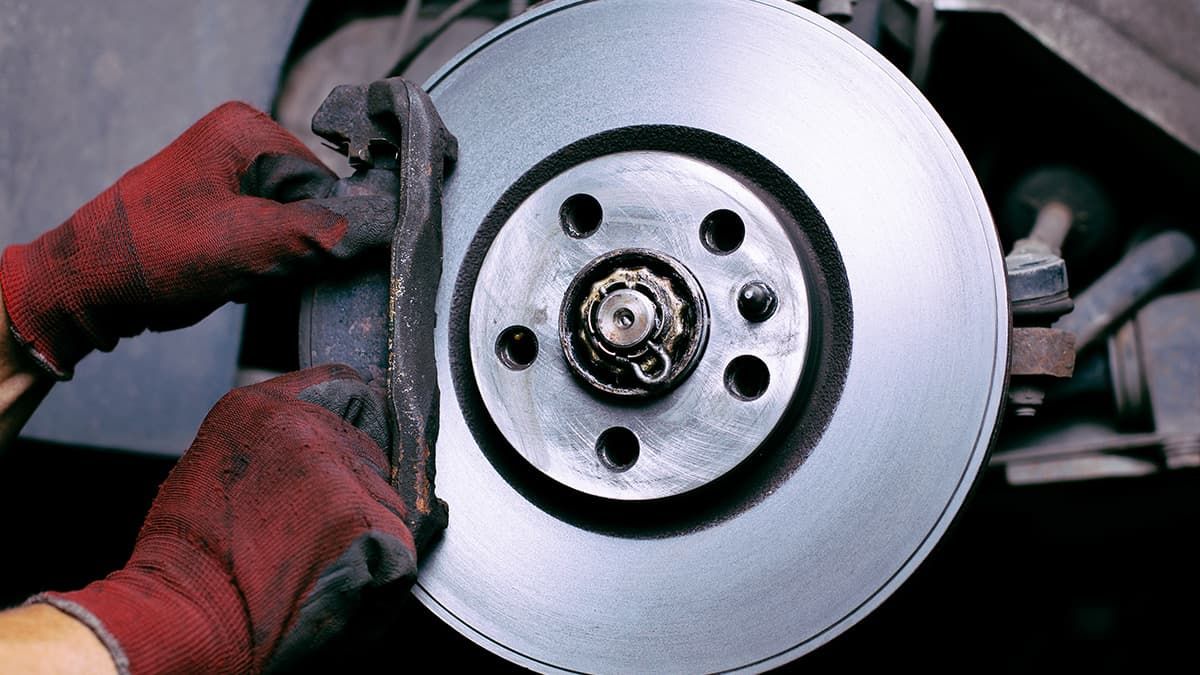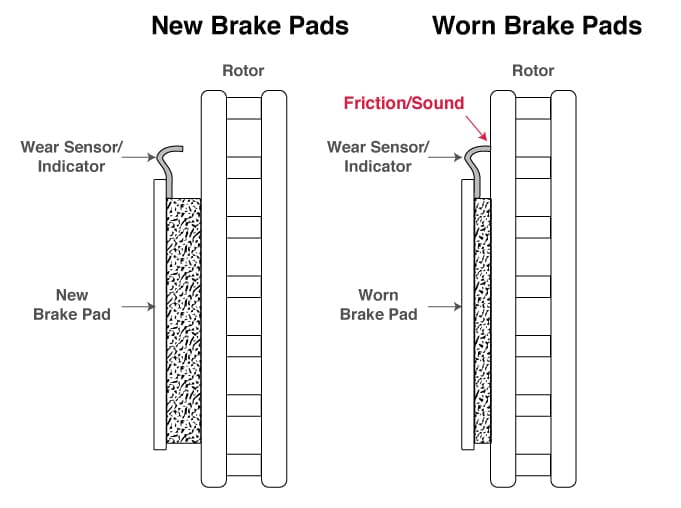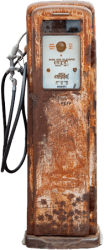Why Are My Brakes Squeaking?
- Home
- Auto Education
- Why Are My Brakes Squeaking?

We often hear buses and the large trucks making these horrible squealing noises when the vehicle slows down or comes to a stop. We find it extremely annoying and we tend to think negatively about the vehicle or even the driver. But what happens when the noise is coming from our car? This can raise the level of anxiety to new heights in some people.
There can be several causes to squeaking brakes including new brake pads, cheap brake pads, old or dried out brake fluid and other issues. But a few of the more common causes that might make you ask “Why are my brakes squeaking?” Are addressed below.
Brake Pads May Be Worn
As crazy as this may sound to some, the awful squealing or squeaking sound produced when stepping on the brakes is intentional. This is a proactive measure added to the braking system of your car to let you know there is a problem.
Depending on the type and brand of your brake pads they can be made up of several different materials including: metal, iron, copper, steel, graphite, etc.. These materials are then bonded together to form the the actual pads. When the brakes are engaged, or pressed, the pads come in contact with the rotor, which causes the friction and resistance to help slow or stop your car.
The more the brakes are used, the more the pads will wear down. When they wear to the point of potential problems, a small metal piece, sometimes referred to as the “warning clip” or “warning sensor”, will make contact with the rotors and produce that irritating and, for some, embarrassing squeaking brake sound.
When this happens it is important that you contact a qualified auto mechanic to have your brakes checked. What may seem like an inconvenience to some may prevent an even more serious interruption in your life later. Better to be safe than sorry, as the old saying goes.

When brake pads wear down, the Wear Sensor comes in contact with the rotor, causing a squeaking noise when you slow down or stop.
Brake Rotor May Be Rusty
A more temporary cause of squeaking brakes may be due to moisture and rust on the brake rotors. When the weather is wet or snowy, or you when drive through puddles, the rotors can become wet. When the car sits for a while afterward a thin layer of rust can accumulate on the surface of the rotor.
The next time you take your car for a drive you may notice the squeaking sound from your brakes. The rust that has accumulated on the rotors then makes contact with the brake pads when you slow or stop the car causing the noise. This is because the particles that make up the rust can then embed themselves into the brake pads when the pads come in contact with the rotor. However this is most often a temporary situation because the continued use of the brakes thereafter will wear these particles away and the sound will stop. If the sound persists, this may be a sign of a more serious issue and you should seek a local auto mechanic as soon as possible.
Lubrication/Debris Issues
If your car is equipped with rear “drum” brakes, the noise may be due to lack of lubrication. These types of brakes differ from disc brakes in the way they interact with the wheel. Drum breaks extend outward form the center of the wheel to make contact, and ultimately friction, with the outer drum. If these parts are too dry they may cause noise.
These parts may also become dirty and filled with debris. It is important to get these brakes checked out to see whether the problem can be a simple clean up and lubrication or replacement of the brake shoes.
In either event, it is important that your brakes be in top working order. This can help prevent accidents, promote safety and provide a great deal of peace of mind.

Recent Articles
IMPORTANT EVENTS
OF 1984
OF 1984
One Cent Auto Repair and Competition Auto Body Starts Its First Year In Business
Popular Culture
- Michael Jackson’s Thriller sales over 37 million copies
- PG-13 movie rating was announced
- The MTV Video Music Awards Started
Popular Films
- Ghostbusters
- Indiana Jones and the Temple of Doom
- Gremlins
- Beverly Hills Cop
- The Karate Kid
- The Terminator
Popular Musicians
- Phil Collins
- Billy Joel
- Tina Turner with " What's Love got to do with it "
- David Bowie
- Wham! with " Wake Me up Before You Go "
- Billy Ocean
- Stevie Wonder with " I Just Called to say I love You "
- Bruce Springsteen
- Kenny Rogers
- Duran Duran with " The Reflex
- Cars
Popular TV Programs
- Magnum, P.I.
- Dynasty
- Entertainment Tonight
- Falcon Crest
- Hill Street Blues
- Cagney and Lacey
- Cheers
- Fame
- Knight Rider
- The A-Team
- Jeopardy
Prices
postage stamp .20
bread .71
milk 1.94
gas 1.27
car $6,294.00
income $12,497.00
house $110,610.00
movie ticket $2.50
Technology
- AT&T Broken Up
- The first Apple Macintosh goes on sale
- Sony and Philips introduce the first commercial CD Players
- Sony makes the first 3 1/2" computer disk
- The Space Shuttle Discovery has its maiden voyage
- The Supreme Court approved video taping of TV shows for home viewing at a later time
- New York instituted nations first mandatory seat belt law
Quick Links
Serving the Following Cities in Oregon
Locally Owned. Licensed. Certified. Insured.

Not applicable for all transactions.
Location / Contact
Address:
34283 SE Colorado Road
Sandy, OR 97055-8264
Phone: (503) 668-9603 Fax: same as phone
Email: This email address is being protected from spambots. You need JavaScript enabled to view it.
Hour of Operation
Monday - Friday 9am - 6pm
After-hours and weekends available by appointment.
Custom Joomla Website Design by J2 Studio - Tampa